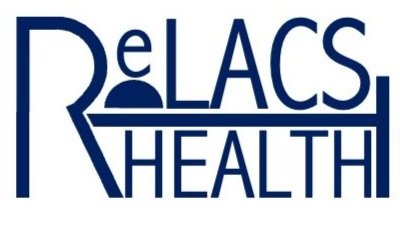Cognitive and Behavioral Therapy for Insomnia (CBT-I)
Cognitive and behavioral therapy for insomnia (CBT-I) is the consensus first-line treatment for difficulty falling asleep or staying sleep that has affected a person for several months or longer; it is also referred to as chronic insomnia disorder. Despite the overwhelming evidence that this treatment is the gold standard—with success demonstrated in the majority of those treated, regardless of country of origin, other medical conditions present, or any other major demographic—it is not easily found. ReLACS Health offers CBT-I, and it is done by Andy Berkowski, MD, a board-certified sleep physician.
All patients wanting help with insomnia start with a 60-90 minute Comprehensive Consultation through a telemedicine appointment. This visit will address your short- and long-term goals and result in a detailed treatment plan for you and your doctors. At the conclusion of the consultation, many of you who are a good candidate for CBT-I can elect to join the Comprehensive Insomnia Management Program. This involves formal CBT-I with generally 5-7 sessions of about 45-60 minutes through telemedicine (video) or by phone, customized to your health needs and schedule. After the program is complete, you may continue with a Standard monthly membership for Dr. Berkowski to manage your sleep on an ongoing basis. Transparent pricing for consultation and memberships can be found here.
Why Should You Choose ReLACS Health for Insomnia Treatment?
Sleeping pills and supplements just don’t work for chronic insomnia. They are quick fixes. They get you out the door of your average sleep clinic quickly. Though every sleep physician knows that cognitive and behavioral therapy for insomnia (CBT-I) is the gold standard of treatment, almost no sleep physician does it themself. This is primarily due to lack of insurance reimbursement for time-intensive, behavioral treatments like CBT-I. Sleep docs can make more money by seeing more patients in a shorter period of time and order more revenue-generating sleep studies, which are not indicated for management of insomnia disorder. Thus, the specialists themselves actually outsource the treatment for this very common sleep condition to psychologists, therapists, and social workers.
Andy Berkowski, MD obtained fellowship training in sleep medicine at the historic Stanford Sleep Medicine Center, learning insomnia approaches from leaders in the field including Rachel Manber, PhD and Allison Siebern, PhD. Within the direct care model, ReLACS Health enables an individual with chronic insomnia to work with Dr. Berkowski himself on a week-to-week basis for this condition while providing any other comprehensive sleep care at the same time as a board-certified sleep physician. While many CBT-I clinicians provide excellent CBT-I, they are short in number and wait times to get treatment are long, often in the order of several months. For a Comprehensive Consultation, you get about 90 minutes of expert one-on-one attention and have to wait generally no more than 1-2 business days to do it and can start Session #1 of CBT-I within days. Schedule your Comprehensive Consultation now!
How Does CBT-I Work?
In the Comprehensive Consultation, Dr. Berkowski will perform a thorough analysis of your health history and every learn every detail of your sleep. Along with identifying and addressing any other sleep conditions, he will determine whether CBT-I is appropriate for you. Generally, you will be provided a sleep diary to track your sleep on a weekly basis in the first few weeks. The program is customized to the individual, but in general, CBT-I uses changes in behaviors and the way one thinks (cognitive) to improve and positively influence the two major aspects of sleep: the physical and the psychophysiological. These two components are so powerful and the brain so complex, that to date, no medication or device can actually induce sleep! All human beings have the innate ability to sleep, such that it has been preserved in evolution, down to the tiniest organisms. Thus, even with insomnia lasting years or decades, an individual can recapture that innate ability to sleep reasonably well, but the physical components have to be optimized and the psychophysiological factors interfering with the physical ability to sleep need to be mitigated.
The first few sessions will be geared toward understanding and optimizing the physical components of sleep: mainly, the homeostatic sleep drive (“fuel” to sleep) and the circadian rhythm (biological clock). In addition, there are physical impacts on sleep that include substances, social schedule, sleep environment, and health conditions that may need adjustment or work-arounds.
The latter sessions focus more on cognitive aspects of sleep and how the psychophysical can interfere with sleep even if the physical component is close to ideal. Humans evolved the ability to sleep like other animals but also have the ability to keep themselves awake if the brain feels it should not be sleeping. The “mind over matter” in insomnia is actually that thinking too much or trying to hard to sleep actually interferes with the ability to sleep well. Sleep is one of the few things in which putting too much work into getting better, actually makes things worse. Counting sheep too hard makes you stay awake at night counting sheep! Here, Dr. Berkowski will work on approaches changing the way one thinks about sleep, particularly understanding the reality of sleep and busting myths about sleep that lead to unnecessary worry. Focus will be on techniques to quiet the mind down at bedtime, to allow deactivation of the mind so that the physical components can take back center stage.

